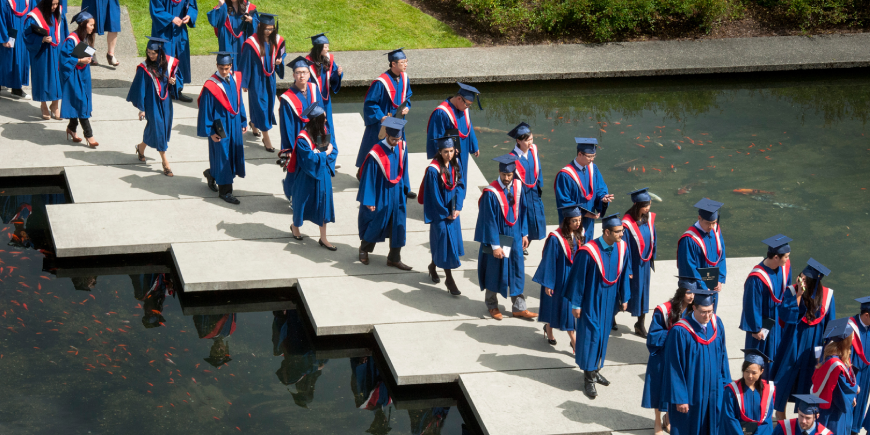
An old Chinese proverb says, “The best time to plant a tree was 20 years ago. The second-best time is now.”
I love the astuteness of these words, in both the literal sense and as a metaphor for many situations encountered in life. In the literal sense, the proverb has personal relevance for me. Growing up, my family and I grew vegetables in our backyard and I have since longed to have a small orchard of cherry and pear trees. I have had this desire for many years but did nothing about it until I finally planted several cherry and pear trees four years ago. Although a lingering desire, I realized .. the second-best time is now.
The proverb is also a good metaphor for a problem that many university students run into when they start thinking about graduate school. Most wait until a few months before the application deadline before thinking about how they might gain an advantage amongst the competition. Although it might seem like four-to-six months is ample time to put together a winning application, certain essential extracurricular elements can take more like a year or two to put in place.
Prepare for Grad School Applications Last Year
One of the main reasons why certain grad-school applicants are accepted while most are rejected is because the successful ones have effective letters of recommendation from the right people. Most unsuccessful applicants are rejected in part because their letters of recommendation are ineffective. Letters of recommendation are highly influential in determining the fate of graduate school applications – perhaps even more so than the applicants’ grades. For example, a professor who only knows a student from classroom and exam performance will not be able to provide an effective letter of recommendation. A professor be willing to provide a letter of recommendation for a student who earned an A+ but, if the professor only knows about the students’ academic strengths, then there will be little relevant substance to the letter.
From personal experience, the best time to start taking steps to prepare for grad school is when you still have at least 2 years before you are applying to programs. This time should be used to acquire relevant experience and connections that set the groundwork for the letters of recommendation that will eventually help you get into a program.
The network building benefits that come with obtaining experience can often outpace the actual skills gained from that experience. Even more valuable is the opportunity to be seen in action and evaluated – to have your best qualities discovered by someone who will later be able to endorse your abilities. One of the most significant benefit that come from getting the right type of experience is that it is the best way to set up influential letters of recommendation. Those recommendation letters should describe how the applicant has demonstrated skills, abilities, and character attributes that are essential for success in grad school.
No Shortcuts
All of this explains why getting into graduate school requires one do more during the final two years of a bachelor’s program than simply earning good grades. Successful applicants will not necessarily have higher GPAs than the unsuccessful ones, but they will have two or three persuasive letters of recommendation from professors who have some insight into how the student works.
In order to set up an effective letter of recommendation, a student must spend considerable time working with or under the supervisor. This experience should be one that enables the professor to learn about the students’ character, abilities, and aptitudes that are relevant to success in graduate school. If the student’s performance over an adequate period of time is generally strong, and if they stand out from the crowd in relevant ways, the professor should be able to provide an effective letter of recommendation to support the student’s application to graduate or professional school.
The Second-Best Time to Apply Is Now
Consider the Chinese proverb and my pear and cherry tree analogy. Don’t delay. Get planting the seeds for your success, as they will take some time to bear fruit.
Beyond the Blog
- Ready to apply for grad school? Learn more here.

















